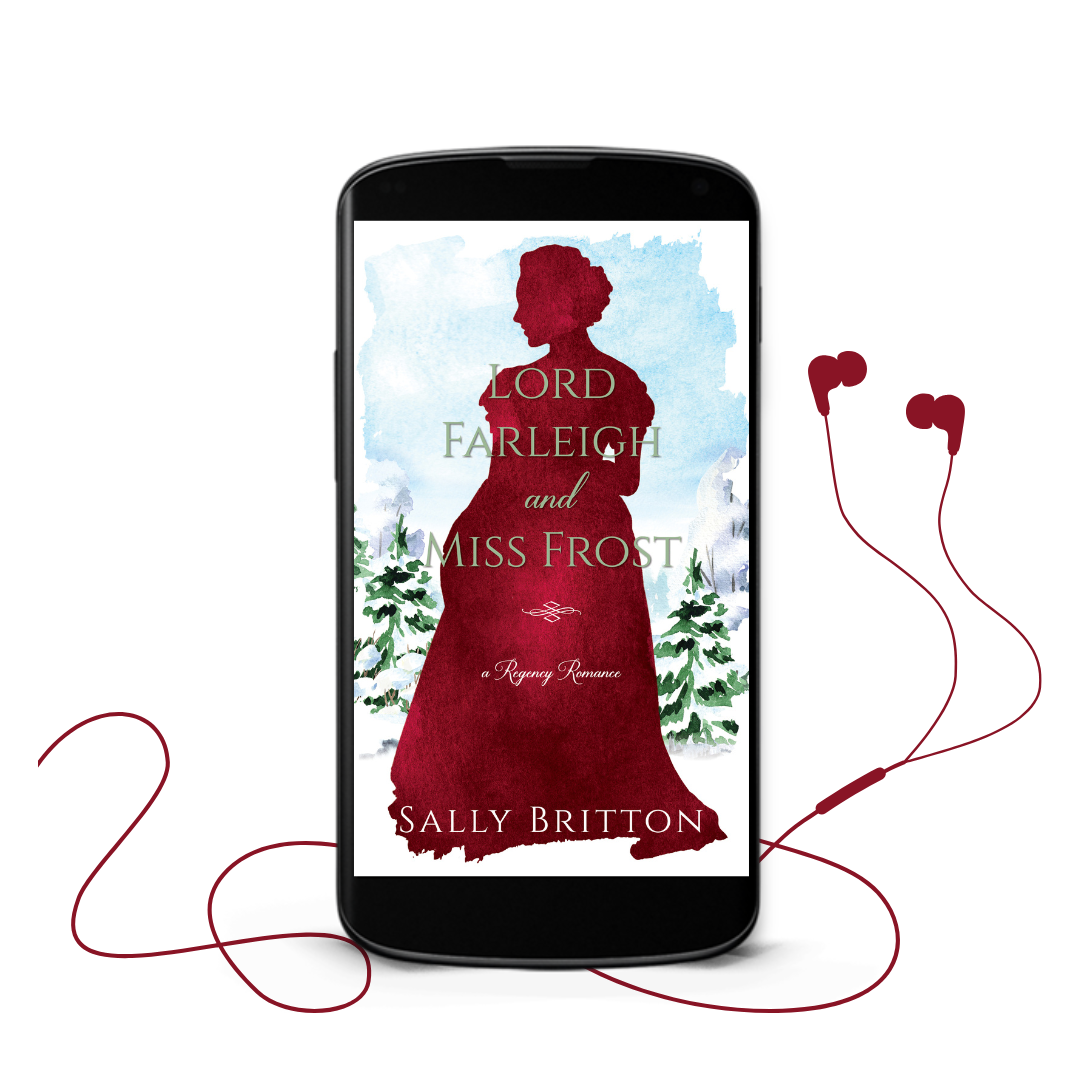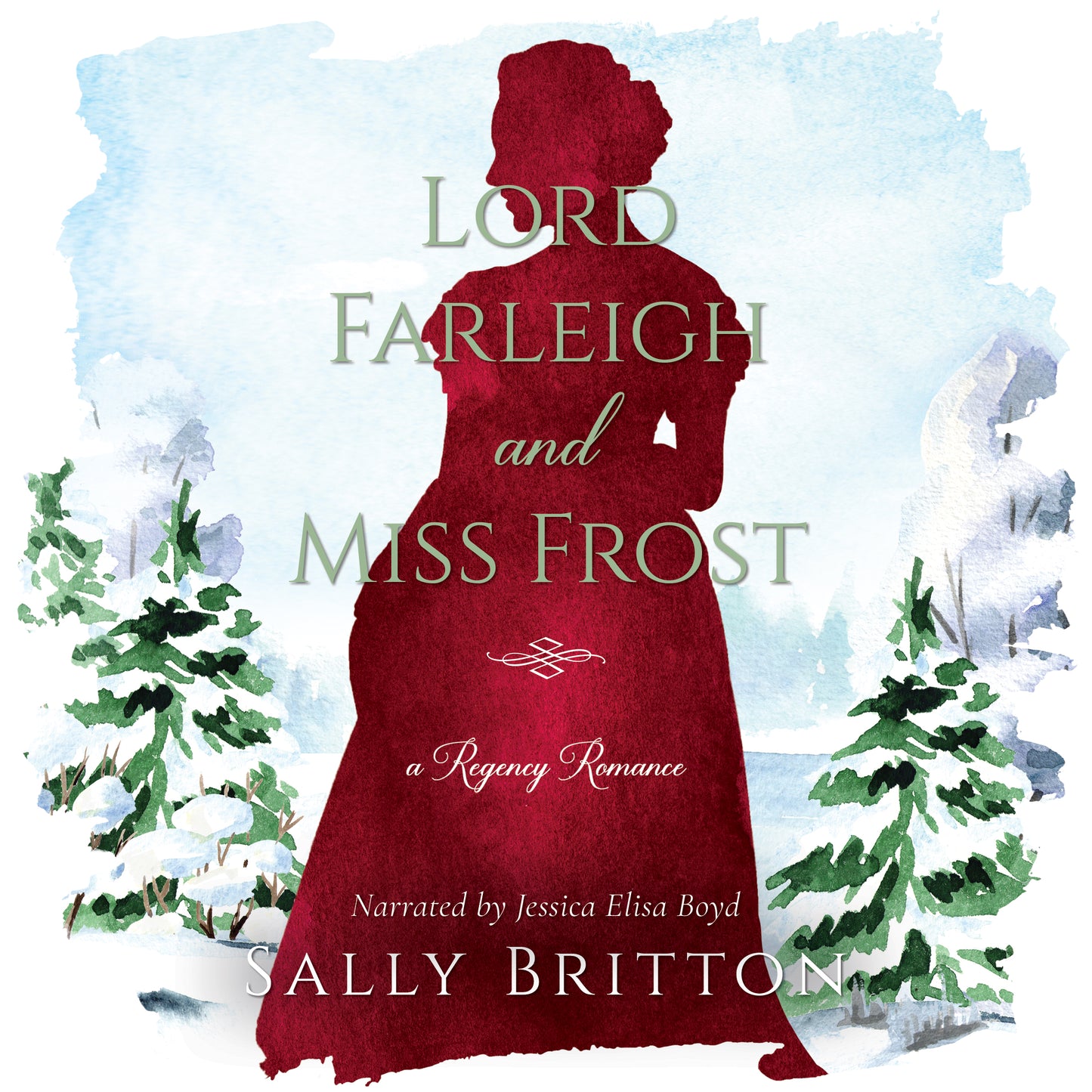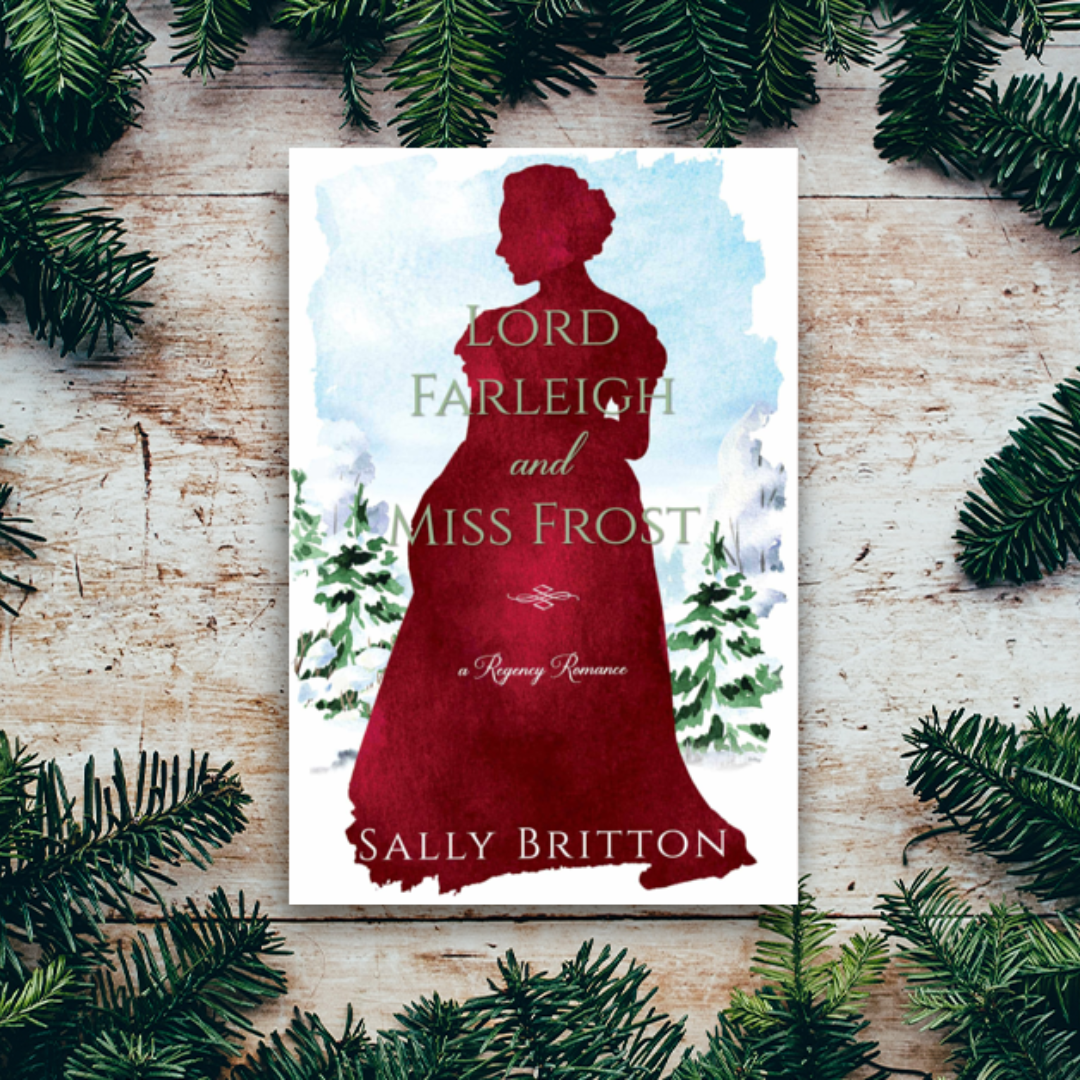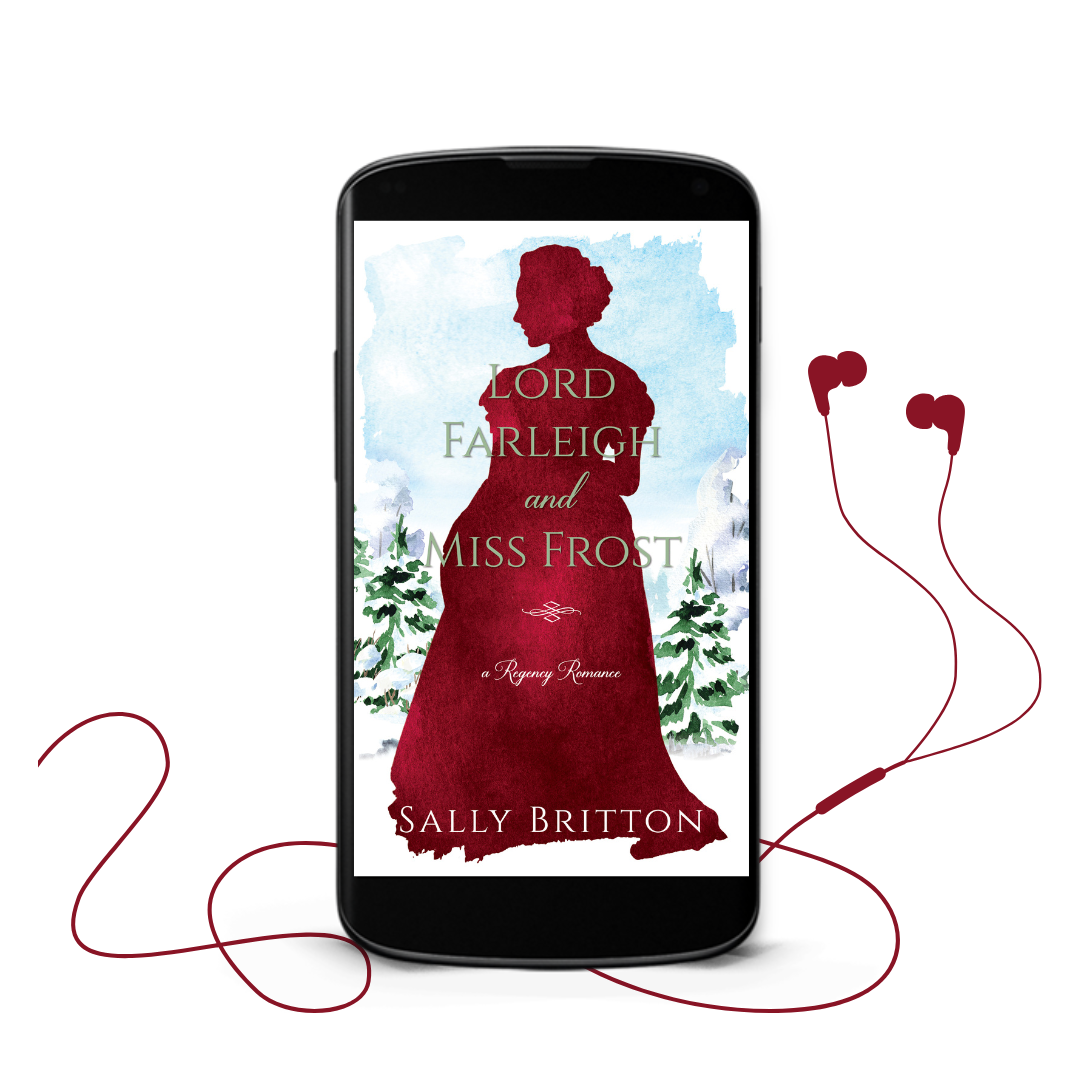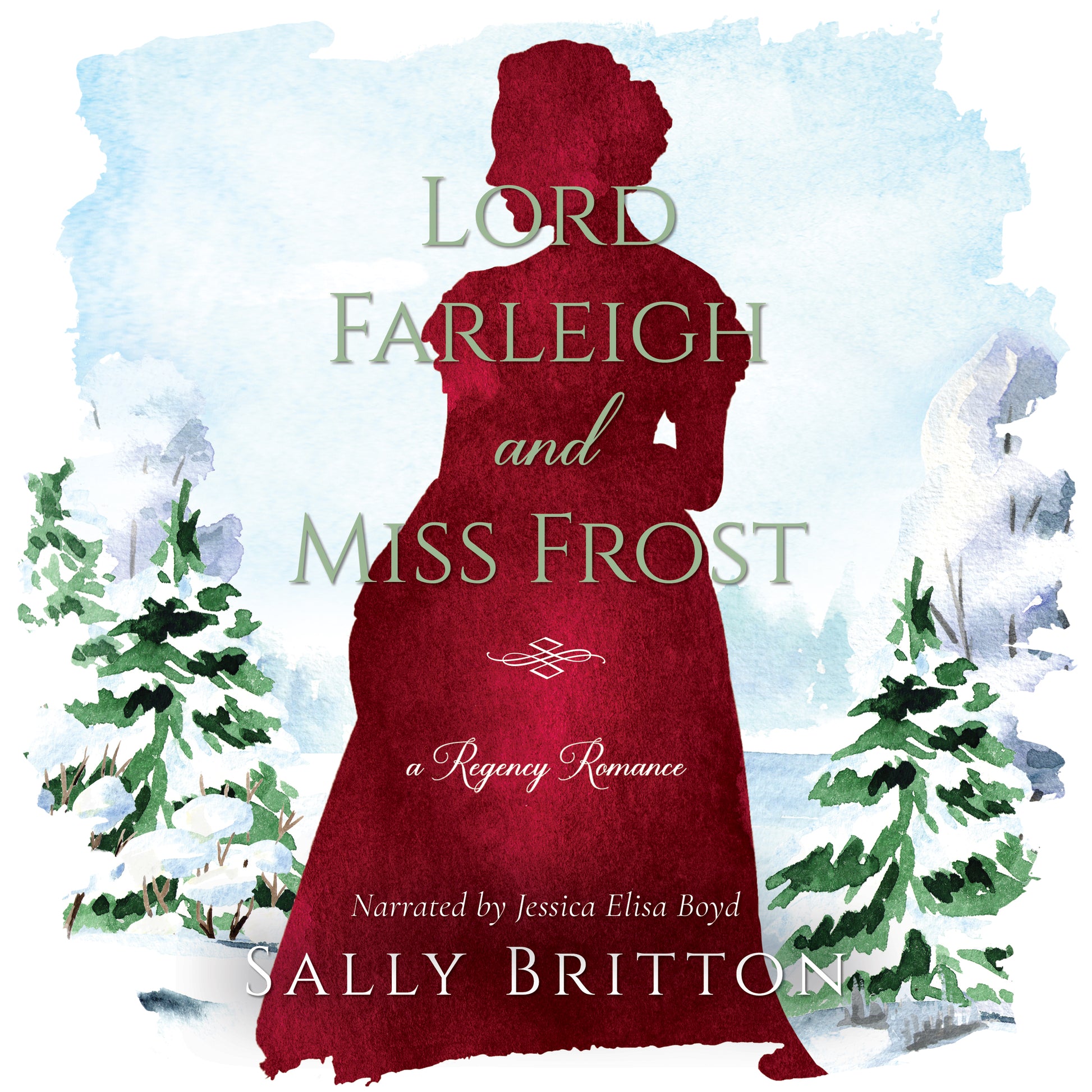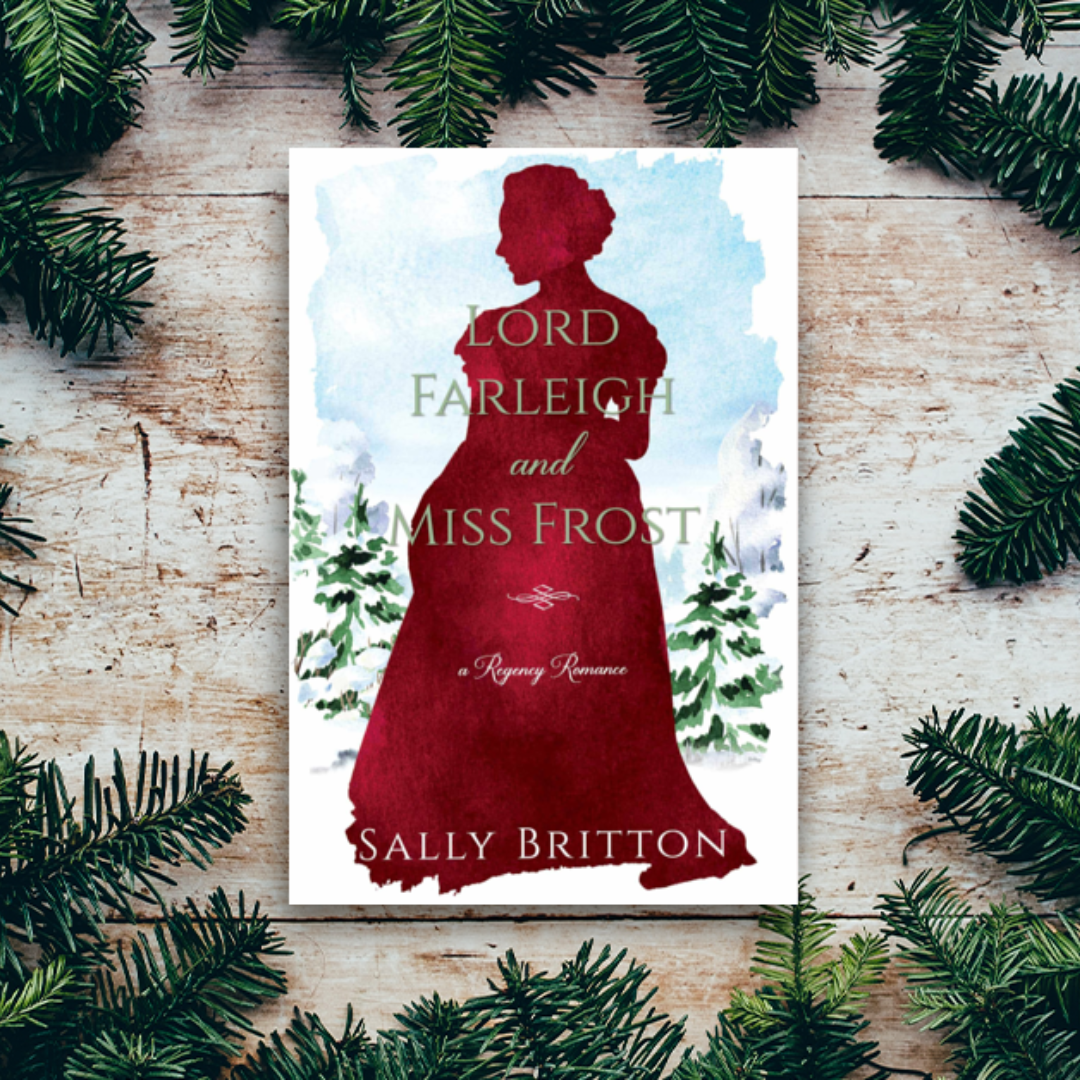Lord Farleigh and Miss Frost
Lord Farleigh and Miss Frost
Narrated by Jessica Elisa Boyd
Couldn't load pickup availability
- Purchase the Audiobook Instantly
- Receive Download Link via Email
- Stream on BookFunnel or Download MP3 Audiofiles and Enjoy!
Isleen Frost reluctantly attends the Duke of Montfort's Christmastide house party, resisting the allure of the castle and its powerful occupants. However, her resolve falters when she encounters Lord Farleigh, the duke's eldest son. Despite their different backgrounds, their unexpected attraction blossoms amidst the magic of the holiday season, challenging societal expectations and igniting a love that cannot be denied.
This novel is a sweet Regency romance and can be read as a stand-alone, though readers of the previous books will enjoy seeing old friends again.
Main Tropes
- Wagers and Relationships
- Christmas Romance
- Opposites Attract
Synopsis
Synopsis
Isleen Frost wishes her family had stayed in Dublin for Christmas but understands it would have been folly to decline an invitation to the Duke of Montfort’s Christmastide house party. Isleen refuses to allow the opulent castle and powerful duke to impress her. But the duke’s eldest son, Lord Farleigh, is another matter entirely.
Raised as the heir to a duke, Simon Dinard, Lord Farleigh, has learned to project a calm self-assurance despite an inner fear he will never be as confident a leader as his father. When a friendly wager and a spirited Irish lady challenge all his unspoken thoughts, he determines to prove her wrong—and ignore the growing attraction between them.
Christmas celebrations at the castle are always full of surprises, but Isleen and Simon are not at all prepared for the feelings the season inspires between them. An Irish miss and a duke’s son have no business falling in love. But the magic of sleigh rides, snow-covered hills, and mistletoe might change their minds...
Intro to Chapter One
Intro to Chapter One
The carriage jolted to a halt—the third stop of the day—when the wheels sunk too deeply into the mud to come out again. Isleen Frost winced while her mother closed her eyes and started whispering in Irish. Isleen’s older brother Teague, Baron Dunmore, cast an apologetic smile to his mother. He winked at Isleen, who sat across from him, then gave a gentle tug to their younger sister’s escaped curl. Fiona glowered at him, as though holding poor Teague responsible for the state of the road.
“We are nearly there, ladies. This will be the last time we stop. I’m near certain of it.” He opened the carriage door, not waiting for the driver to jump down and inform the passengers that they must all climb out again.
Teague did not bother trying to avoid the deep muck. Dried mud already covered his boots nearly to their tops. Isleen looked down at her far less-sturdy traveling boots and winced. The boots were fair ruined.
Fiona grumbled. “This isn’t much of an adventure.”
They’d tried to cheer Fiona when she discovered she’d spend the holiday away from her friends in Dublin by appealing to her exploratory nature. The ten-year-old wouldn’t be happy until she set sail across an ocean or climbed the Alps. She inhaled adventure novels as some would their favorite pastries.
Their brother held out his hands to help Isleen jump from the carriage, then he swung her over to the higher—and dry—rise of earth beside the road. She gave him a thankful smile as she put her hand atop her head to adjust her bonnet. Then she peered uphill, her view filled with trees and not much else.
There was supposed to be a castle at the top of one of these hills. The tree-lined road made it impossible to spy the edifice, though she’d been searching for it through her window since they’d entered Vale of Clairvoir. Apparently, approaching from the south meant the castle hid behind trees until one was only a hundred yards away from it.
Máthair came down the carriage step next, and Teague swung her to the same little rise as Isleen. Neither of them complained, though Isleen could guess well enough what they were all thinking.
They ought to have stayed in Dublin for Christmas and remained in Ireland until Parliament reconvened in January. But when the Duke of Montfort invited an Irish representative to his home for Christmas and Twelfth Night celebrations, folly alone would keep that Irishman from attending.
It took time enough for England to grant any kind of support, thanks to the bickering lords, to have their country’s needs met. And the Irish had a long road yet to travel.
Fiona made no such effort to bite her tongue. As soon as Teague had settled her boots on the dry dirt next to their mother, she heaved a large sigh. “Why must it be so wet and mucky?”
“I am not sure mucky is a word, Fi,” Isleen said before her mother could respond to the complaint.
Teague spared Isleen a raise of his brows before he tromped to the back of the carriage to help the driver and the secondary coachman push.
Lady Dunmore looked up at the gray cast sky. “At least it isn’t snowing.”
Isleen avoided adding the word “yet” to her mother’s sentence, but barely. Instead, she cheerfully tacked on, “I would take snow over mud.”
Her mother hummed with amusement, the sound nearly a song on its own. “And I would prefer flowers over snow. But we take what God gives us, and we’re thankful.”
“We do, Máthair.”
With a gentle smile, her mother warned, “Best not let your Irish show overmuch, dear. Our English hosts won’t find it to their liking, I’m thinking.”
Fiona snorted. “If they didn’t want to hear it, they shouldn’t invite the Irish to their home.” The little girl wrapped her arms tighter about herself.
A shout drew their attention before Isleen offered her own remark on the unfairness of their mother’s directive. Though she quite agreed with her little sister. Why did she have to change how she sounded merely to appease a duke and his family? The English had ground the Irish underfoot for centuries. One would think an Irish tongue the very least of their worries when families from the two countries came together. Still, Teague had made both his sisters promise to behave as the very best of guests.
The carriage lurched forward. “Ah, there we are now.” Lady Dunmore clapped her hands. “And hopefully for the last time.”
The coachman tipped his hat to them as he came around the carriage. “Ready again, ladies.”
Teague walked behind the man, mud now above the tops of his boots. “I’m not certain I ought to climb back in with the three of you. I might get this mud all over your skirts.”
“You cannot ride on top like a servant, Teague,” his mother protested. “You are a baron, visiting a duke.”
“And you are a baroness and two fine young ladies, guests of the duchess.” Teague opened the door and then came to fetch his mother to save her from the mud. “I’ll not get a spot on your gowns. It wouldn’t do to shame you like that, would it now?”
Though she didn’t argue, their mother threw a concerned glance over her shoulder to Isleen. The woman had a fair amount of pride. Anything that made them appear less in their esteemed hosts’ eyes would sting, whether or not the baroness admitted it aloud. Even if the duke and duchess themselves never let on about such a thing, Baroness Dunmore would feel it keenly.
Isleen waited until her brother returned for her before saying, “I have an idea.” He quirked his eyebrows up. “Why not put the blanket around your legs instead of over ours? That will save our gowns from ruin and you from certain shame by riding on top of your carriage instead of within.”
“I suppose a filthy carriage blanket would be better than the alternative.” Teague answered her grin with his own. “That’s a fine idea, Isleen.”
She shrugged. “I am an expert at solving problems.”
“That you are. Let me solve yours now and tuck you back into the carriage, safe and sound.” Teague was a strapping gentleman, thankfully. He handedly replaced Isleen and Fiona back into the carriage before carefully coming in again himself, taking one of the warm blankets and wrapping it around his legs in a way that would prevent so much as a fleck of mud from leaving his boots and trousers for the ladies’ skirts.
Fiona pressed her nose against the carriage window, straining to look upward as the carriage shifted to begin a steeper climb. “Do you think this castle will be like the Tower of London?” she asked. “Or more like the Rock of Cashel?”
“Both of those buildings are terribly old, m’dear,” Teague said with his head tilted against the back of the carriage. “This castle is newly built upon old foundations. I imagine it will feel modern in all the most important ways.”
“You mean there will be water closets?” Fiona asked, rather indelicately.
“Fiona,” their mother warned, closing her eyes and shaking her head. “A lady only asks about water closets when she needs one.”
“I will certainly need one when we finally arrive,” Fiona stated with a grim slant to her eyebrows. “We have been in this carriage all day, bumping along the roads like apples in a cart. What lady wouldn’t need a water closet on arrival at a castle with roads like these?”
Isleen had to fight against a laugh as her mother raised her eyes to the heavens, as though beseeching them for patience. Fiona was eighteen years younger than Teague and fifteen younger than Isleen. She’d been a late addition to their family, bringing great joy to their parents, but she’d also been spoiled rather more than was good for her. Thankfully, she had a kind nature overall. The long journey could be blamed for putting her out of sorts.
“We are nearly there, and once you have rested and had something to eat, I think you will perk right up.” Isleen gave her mother’s hand a gentle squeeze. “We all will.”
The carriage’s tilt changed as they moved to level ground. Isleen and Fiona moved as one to the windows and looked out. Isleen ignored her brother’s amused chuckle; they had arrived at last. The carriage turned, and neatly trimmed hedges came into view. And then, a tower soaring above them, then several smaller turrets, all of them with walls of bright yellow-gold stone. The modern castle, despite its recent build, appeared quite medieval.
What had she heard her brother call the style? Gothic revival. With the blue sky bright behind it, and the green lawns stretching away from the stone walls, she’d never seen a castle look more cheerful. Indeed, it made her think of summer and warmth, even though she wore gloves to protect her fingers from the December air.
“It looks like a fairy tale,” Fiona whispered with reverence.
The carriage horses walked with lighter steps up the gravel and stone drive and into a part of the castle itself. They entered a portico that offered protection from the elements for weary travelers. The sounds of the horses’ hooves echoed in the open stone chamber as the vehicle came to a gentle stop.
Suddenly, Isleen felt quite small. Their family home in the country was nothing like this, and the house where they spent most of their time in Dublin could likely fit inside the main tower of Castle Clairvoir with room to spare.
From the outside, the Duke of Montfort’s seat of power was as imposing as it was beautiful. What would she find within? Hopefully just enough adventure to keep Fiona entertained but not so much that she traded in being a respectable young woman to be a piratical maiden.
A servant dressed in the duke’s livery opened the carriage door and bowed, allowing her brother to step out first and then take each of the women by the hand and assist them down to the ground. Isleen looked up at the long corridor before them, with windows high and bright, shields and tapestries hanging on the walls, along with rows and rows of swords. At the end of the hall, a cannon pointed their way.
Not the most welcoming sight, but certainly a statement of power, she thought, then allowed herself to count the number of liveried footmen and starched-aproned housemaids standing along the corridor. There had to be at least twenty of each, the women wearing dresses that seemed to indicate different statuses among them, and the men all dressed as though they had stepped out of the previous century rather than wearing sensible clothing from their current time. The servants at the farthest end from where they entered were the best dressed, for certain, which marked them high in the household pecking order.
Isleen couldn’t help sorting out what she knew of the Duke of Montfort and what this display of wealth might mean. Her brother wasn’t a high-ranking member of the peerage. A baron put him nearly at the level of the untitled. There was no need, therefore, to impress or intimidate someone of his status. Add to that his Irishness, and most Englishmen of rank would snub him.
This wasn’t a snub. Or a show of power.
Servants at the end of the long walkway came forward to take their wraps, overcoats, hats, and gloves, and Isleen’s fingers immediately felt chilled.
It occurred to her as they passed from the sword-covered and servant-lined corridor that the duke and his duchess were putting on this show for an entirely different reason. The only thing that made sense was that they wished to show honor to their guests.
At the same moment of her realization, a deep voice boomed through the large room where the corridor had spilled the Irish guests.
“Welcome, Lord Dunmore, Lady Dunmore, to our home.”
The duke stood on the red carpet, a tall man with dark hair turning gray at the temples, dressed in a deep green coat and gold waistcoat that made his eyes blaze as green as the Emerald Isle itself. Despite his age, he cut a commanding figure. The floor around the carpet looked like a giant chessboard, black and white marble squares stretched in all directions, and two hearths large enough to roast a pair of boars blazed on either side of the room. The fires kept the room from falling to the low temperatures outside, but they wouldn’t warm Isleen’s hands from their respective places in the room.
“Thank you, Your Grace.” Teague hadn’t stopped walking, nor had her mother. Fiona had to give her a poke to the small of her back before she realized she had fallen three steps behind.
Someone giggled, only to be immediately shushed. Isleen kept her chin high and a smile on her lips. Her gaze immediately found the source of the giggle. A boy near Fiona’s age stood at the end of the duke’s family line. The girl next to him had shushed him, and she smiled kindly when Isleen’s gaze met hers.
The duke spoke again, and Isleen forced herself to stop gawking at the finery like a country bumpkin and pay attention to a man with nearly as much power as the Regent himself.
“I am honored by your acceptance of our invitation, Lord Dunmore. It cannot be an easy thing to spend your Christmastide with near-strangers, though my son assures me he counts you as a friend. Will you introduce your family?”
“With pleasure, Your Grace. We are honored to be welcomed into your home. This is my mother, Lady Dunmore.”
“An honor, Your Grace.” Máthair’s polished curtsy left nothing to be desired.
“And my sisters, Miss Isleen Frost and Miss Fiona Frost.”
Isleen curtsied in tandem with her sister, eyes lowered appropriately. They rose again, and her eyes flicked from the duke’s to the duchess’s kind blue gaze, then of their own accord slid farther to the duke’s right—meeting a pair of dark blue eyes that sent a small thrill of surprise down her spine.
A man she hadn’t bothered to notice before, except as a form standing in the duke’s reception line, stared at her with an intensity she’d call audacious in another man. This had to be the duke’s eldest son and heir, the man who had sought out her brother and befriended him during the last parliamentary season.
Lord Farleigh, Earl of Farleigh, future Duke of Montfort. What was his name again? She had thought it odd, since all Englishmen seemed to be called John or William.
“My wife, Her Grace the Duchess of Montfort. My son, Lord Farleigh. My daughters, Lady Isabelle Dinard and Lady Rosalind Dinard, and my son Lord James Dinard. My eldest daughter will arrive this afternoon with her husband, and we will have other guests to introduce you to soon enough.”
The duchess offered a warm smile. “It is wonderful to have your family here for the Christmas celebrations. I hope you enjoy your time in our home. I know it can be difficult to leave your own when there are beloved traditions to honor.”
“It is a delight to be here, Your Grace,” Máthair said with sincerity. “Thank you for thinking to invite us.”
Fiona shifted her weight from one foot to the other, and Isleen quite suddenly recalled her sister’s carriage conversation regarding water closets. She tried to subtly take her sister’s hand to offer a squeeze, the only reminder she could give to exercise patience when a duke and his family stood on such ceremony to welcome them.
Her gaze wandered as those bearing titles continued to make the usual sort of conversation people would upon introductions and welcomes. Suits of armor stood between pillars above the staircase that led up and into the castle. Banners hung from the ceiling above, along with a large stag’s head and old shields bearing crests she’d never seen before. Flanking the large fireplaces were men dressed as servants, but in less eye-catching clothing than the livery the footmen wore, and she wondered briefly at their purpose.
The ceiling stretched high above her.
Quite suddenly, someone cleared his throat at her elbow.
Isleen had grown inattentive again in her admiration of the architecture, which meant she had no warning that the duke’s family meant to escort hers to the guest wing where they would stay. Wasn’t that something far beneath the duke’s status? Surely, a servant leading the way would be perfectly acceptable.
But the duke’s son, with those deep blue eyes he inherited from his mother, tilted his head forward. No smile touched his lips as he held his arm out to her. “Miss Frost. May I escort you upstairs?”
Isleen saw in an instant that the duke himself already led her mother to the first step of the elegant staircase, with her brother escorting the duchess, which left her to be on the arm of the heir, while their younger siblings followed behind.
“Of course.” She laid her hand upon his forearm. “Thank you.” Belatedly, she forced a tight-lipped smile. He must think her backward and strange, to catch her gawking at his family’s entryway as though it were the king’s own palace. She’d been in grand places before, but had apparently hidden her awe much better.
Already she had failed. She hadn’t wanted to give anyone in the duke’s family reason to think less of her own. Isleen ground her teeth together and plotted her way out of the poor first impression she’d given the heir to the duke.
* * *
Simon hadn’t meant to startle Miss Frost, but she’d not been paying any attention to the flow of conversation around her. Which amused him, somewhat. Most young ladies, when introduced to his family and to him, pretended that every word flowing from a member of the duke’s kin was as intoxicating as it was fascinating.
And here, Miss Frost had practically ignored them all.
Perhaps she had another game in mind. Most single women he met had one plan or another to gain his attention or—in less honorable circumstances—his father’s.
“Do you like the castle?” he asked, his tone flat and eyes forward rather than upon her as he spoke.
Simon Dinard, Earl of Farleigh, knew his duty when his parents invited guests into their home. Especially with these particular guests. His father had wanted to meet Lord Dunmore ever since the man’s appointment to the House of Lords.
Simon had a duty to his parents’ guests, to see to their comfort. And to escort Miss Frost from one room to the next until a lady of higher rank arrived at the castle. Or until his brother-in-law and best friend, Sir Andrew, arrived to take over that duty.
Miss Frost must have heard something of his suspicions in his tone. She tilted her chin up and offered him a smile with a lot of teeth.
“I find I do. It won’t be difficult to enjoy our stay, given the beauty of the castle. I understand your mother had her hand in its design. I hope she will not mind sharing how such things came to her mind as a fireplace without a chimney.”
He blinked and glanced down at her. “Not everyone notices that. You have keen eyes, Miss Frost.” Was it his mother she wished to impress for social gain? It was a lesser-used tactic, but he’d seen it before.
She gave a tight nod. “Have you been to Dublin, Lord Farleigh?”
“Yes. I spent the better part of a year at our family’s holdings in Ireland. Dublin is where I first met your brother.” The abrupt change of topic didn’t put him off the scent. He’d know soon enough if she meant to be more than a well-behaved guest.
“Then you know how grand the cathedrals, castles, and estates are where I come from.” She raised her chin a notch. “I can admire the work that goes into creating fine buildings, both ancient and modern.”
“So it would seem.” He couldn’t keep the amusement out of his voice this time. She would speak to his mother, then, and hope to win the duchess’s favor. That would be amusing, if he happened to be there when his mother decided to put the girl through her paces. But he could offer her a fair warning. “It will delight my mother that you have an interest in architecture. She never tires of the subject. Though many young ladies who attempt to speak to her about it soon find themselves overwhelmed.”
“As most would, I imagine.” She seemed unruffled, and perhaps unaware of the fact that he was on to her. As she continued to speak in a self-assured tone, his pace slowed. “Ladies are not trained to recognize the differences in limestone and granite, or whether the columns of their garden follies are Ionic or Corinthian. I, myself, have only found a recent interest in the subject when I discovered how closely art, fashion, and buildings follow such things as religious transformation or the transference of political power.”
Simon took a moment to sort through her words, then stopped completely in his tracks. No one noticed that he and Miss Frost had ceased moving. His parents were several steps farther down the corridor of the guest wing, in the middle of their own conversations.
His younger siblings had already turned a corner to take Miss Fiona to the nursery rooms, where most children stayed until they were old enough to sit with the adults at dinner. Isabelle had only just claimed that right, but she’d still take any nursery guests in hand until she was presented at court.
He opened his mouth to respond to her, then closed it again. And couldn’t help frowning. He’d never heard a woman of her age speak of “the transference of political power.”
No one saw the way Miss Frost stared up at him, her eyebrows raised in challenge. Her eyes themselves, a shade of brown so dark it reminded him of rich earth and black coffee, sparked with indignation. As though he had offered her some sort of insult.
“The Irish are capable of producing well-educated women, my lord,” she said, her voice soft so it would not carry past the two of them. “You needn’t worry that I’ll falter in conversation with anyone. Even a duchess.” Her directness startled his next words out of him.
“That isn’t what I meant.” And then he wanted to kick himself. Because her head canted to one side, and she narrowed her eyes at him.
He’d thought her only interested in impressing his mother, or him, but she seemed to hold no interest in gaining anyone’s regard at that moment.
“Then what did you mean?”
He jerked his chin upward, resetting his posture. Women didn’t talk to him like that. At least, most of them didn’t. He supposed his sisters did, and Emma, who might as well have been a fourth sister to him. Must he admit to Miss Frost he’d been certain she meant to set her sights on his mother for her own gain?
That wouldn’t be polite or acceptable coming from a gentleman, let alone a duke’s son.
“Lord Farleigh?” she repeated, expression unchanged. Her determination to catch him out on his poor manners rankled, but with good reason. She was in the right. “Will you not clarify what you meant?”
“It was nothing of importance,” he said, then added before she could question him again, “We have fallen behind the others. I am sorry for delaying your rest, Miss Frost.”
Her expression clearly shared that she knew his excuse for what it was—a diversionary tactic.
“I am perfectly content with our pace, my lord.” Then she turned away, letting her eyes wander the walls as he walked with her down the corridor past portraits of ancestors and thin tables covered in candlesticks, flowers from the hothouse, and small treasures from his parents’ travels.
Her genuine interest in her surroundings made Simon wonder if he’d miscalculated in his assumptions. Miss Frost might not have any interest in him or climbing higher up the social ladder. Considering what Simon knew of Lord Dunmore, it wasn’t so difficult to imagine his sister sharing a similar disposition.
“Are you not eager to see your quarters?” Simon asked, keeping his gaze ahead. “My mother chose your room herself.”
“How kind of her.” Miss Frost sounded not in the least impressed.
Had he offended her? In the first quarter hour of their acquaintance? He couldn’t recall ever managing such a feat before. “Your rooms overlook the gardens, I believe.”
The woman nodded once, and when she responded her tone remained cool. “That sounds lovely.”
Yes. He’d offended her. Though not with his actual unvoiced thoughts. She had taken exception to his challenge of her knowledge. And bristled up like a hedgehog.
They arrived at the guest wing as his parents turned and walked toward them, having seen their other guests settled in comfortably. His mother’s eyebrows were raised, but his father appeared his usual steady self. The duke rarely gave away his thoughts by his expression.
“Ah, here you are, Farleigh. Miss Frost. We worried you’d gone astray,” the duchess said with a teasing smile.
“Miss Frost expressed her curiosity in the castle’s construction.” Simon forced a smile. The woman at his side might be daring enough to speak to him so coldly, but surely she wouldn’t offer even a sliver of insult to his parents.
“Oh? Have you an interest in building design, Miss Frost?” the duke asked, and Simon tried to detect whether his father harbored the same suspicions about Miss Frost that Simon had.
“Only in so far as it relates to culture and history,” she answered with a prim little smile. “I could never design such a construct myself. I was a woeful student in mathematics, which I know plays an important role in architecture. I enjoy studying the history behind such works.”
Simon had the rare surprise of watching his father’s most genuine smile appear in front of a complete stranger. When the duke lifted his eyebrow at Simon, he remained uncertain of what had impressed his father.
“I find the influence of culture on a building’s creation quite interesting, too,” the duchess confided. “We must make time to converse about such things while you are our guest, Miss Frost.”
“I would enjoy that, Your Grace.”
“Simon, let us leave your mother to show Miss Frost her room. I have need of you elsewhere.” The duke bowed to the women, and Miss Frost curtsied low as Simon and his father took their leave.
As soon as they were safely away from the women, the duke spoke. “You aren’t usually distracted by our guests, son.”
“She wasn’t distracting so much as disquieting,” Simon answered, forcing himself to match his father’s posture and gait. He’d tried to imitate the duke’s walk and the way he held his broad shoulders since childhood. Even now that they were of the same height, Simon couldn’t match the duke’s purposeful stride.
“Really? In what way?” the duke asked. “She seems an ordinary enough sort of young lady.”
Black hair, brown eyes, and fair skin might sound ordinary, Simon supposed. But there was more to Miss Frost than that. Her heart-shaped face and slim build were enough for most men to declare her pretty. Simon admitted such with ease, though not out loud to his father. But there was something more than that. A fire in her eyes that set her apart.
“She is quite forthright,” Simon said at last, unable to think of a better way to describe the effect she’d had on him. “And I have the feeling she is not easily impressed.”
At this, the duke chuckled, and Simon could’ve sworn his father muttered, “The lady’s most worth impressing never are.” The duke quickly changed subjects, however. “Your sister and Sir Andrew arrive in a few hours, returning with your grandmother. Emma comes with her ambassador the day after next. Do you think you can manage the amusement of our more youthful guests until then?”
“Of course, Father.”
“Excellent.” They were going to the library, and the duke’s personal office. Simon didn’t ask why, and his patience was rewarded the moment they stepped inside. Two members of the duke’s guard waited within, standing at attention.
Captain Rockwell had served under the duke for decades, beginning his place as a guard to the duchess. The younger man standing beside him, Sterling, was the most likely candidate to one day take Rockwell’s place. Sterling had spent the majority of his time on duty watching after the now-wed Lady Josephine. Now he acted as second in command.
“Rockwell, Sterling. What have you to report on our new arrivals?”
The duke didn’t mean the baron’s family—but the servants. The baron’s servants had arrived earlier that morning as was typical;, generally, servants from other households poured into the castle ahead of their employers. Most of them would never know or guess that the duke employed a number of trained soldiers whose purpose was to protect the family and castle from all threats, within and without.
In Simon’s lifetime, they’d only needed that kind of protection a handful of times. In the last year, with the political unrest that had led to a violent and deadly massacre in Manchester three months before, the duke had grown more serious about the guards’ place in his home.
“Nothing stands out as unusual at this point, Your Grace,” Rockwell announced. “Though it’s early days yet. Most of the servants will keep to themselves until they’re more comfortable in the common areas.”
“And you, Sterling? What have you to report?” the duke asked.
Rockwell commanded all the guards, but Sterling possessed a natural charm that made it easier for him to form new friendships with other servants. “I agree with the captain, Your Grace. There are no signs of trouble as of yet.”
“Thank you. I’m most concerned about the male servants,” the duke added, “and their political leanings. If anyone has connection to the Lancashire movement, I want them watched carefully.” In the days since the St. Peter’s Field incident, more than one man had sworn that the politicians of England would have vengeance visited upon them.
It didn’t matter that the duke was one of the few who championed the people’s needs. He was still a duke, and a strong symbol of noble rule over the people. Political agitators had attacked the duke’s carriage, with the duchess inside, during the summer.
The duke dismissed the guards after asking a few more questions and ensuring they had what they needed for the coming weeks to see to their duties. That left Simon and the duke alone in the office.
“Simon. Keep your eyes and ears open too, son,” the duke said as he relaxed into the chair behind his desk. “I cannot shake the feeling that we have not seen the last of violence. Our people are desperate, in many respects.”
“Yes, Father.” Simon let the weight of the duke’s trust settle on his shoulders. All his life, he’d trained to one day take the reins from his father. The duke’s family, lands, estates, and political responsibility would all fall to Simon, though he hoped it would be decades yet before he took his father’s title. “But we can hope for a quiet Christmas.”
“With Josephine and Emma back under the castle roof?” the duke asked, one eyebrow cocked upward. “Unlikely.”
Simon chuckled and took a seat across from his father. “You have missed them.”
“I have.” The duke steepled his fingers together before him. “Do you think our Irish guests will feel at home during the celebrations? It has been a decade or more since I spent a Christmas in Ireland. I confess, I cannot remember much of the traditions I experienced there.”
“I am certain they will enjoy our English hospitality, Father.” Simon tapped the arm of the chair as he spoke. “I can ask Lord Dunmore what we might do to help his mother and sisters enjoy their time here. Perhaps incorporating some of their traditions with our own.”
“A good idea. I am pleased with how well your friendship has progressed with Dunmore. He is an intelligent man, but not too solemn to enjoy a conversation.”
“Andrew will like him,” Simon added with a grin. “Dunmore has a keen sense of humor, so I feel the two of them will get on well.”
At his father’s request, Simon had made a point of searching out and befriending the baron in order to extend this invitation to Castle Clairvoir. Simon knew what was at stake, politically, and he knew what his father expected of him. He’d agreed to keep Lord Dunmore and the elder of his two sisters amused, at least until Josephine arrived to take charge.
He’d genuinely come to like Lord Dunmore. The man had a good head on his shoulders, didn’t show a temper, and had a sense of humor that made him easy to be around. Simon hadn’t imagined the sister might be the same. His own sisters and he were nothing alike in temperaments.
Simon rose to take his leave. “If you have need of me, Father, I will be in the saloon.”
“Simon?” his father called as Simon’s hand touched the door handle.
He turned to face his father.
“Good luck with Miss Frost.”
Given the way his father smiled at him, Simon thought it best not to question what the duke meant. His father rarely teased his children, but it was best to leave off speaking about any single young women. Simon kept his response to a mere bow, then went on his way.
Good luck with Miss Frost. He was a duke’s son. He didn’t need to impress anyone. Nor did he need luck. Especially where a temporary houseguest was concerned.
Simon had too much else to worry about. Miss Frost was the least of his concerns.
